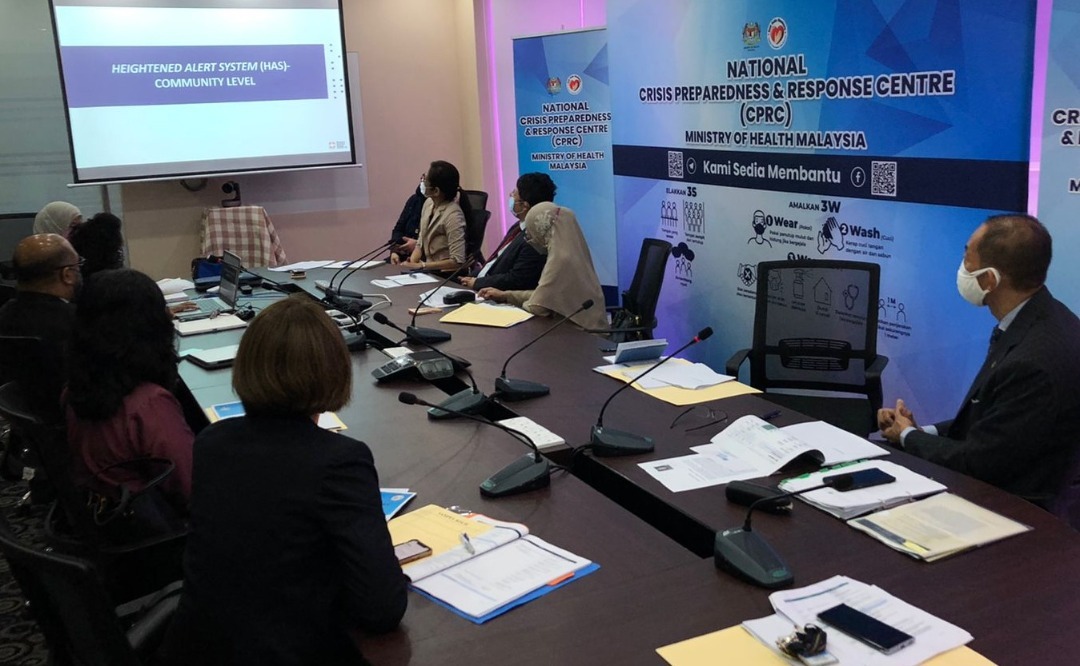KUALA LUMPUR, Dec 8 — World Health Organization (WHO) Western Pacific regional director Dr Takeshi Kasai has praised the way Malaysia adapted its public health response to live with Covid-19.
Dr Kasai visited the Ministry of Health’s (MOH) Crisis Preparedness and Response Centre (CPRC) last Monday, as well as a community mental health centre, and the MAIWP-Hospital Selayang Surgery Centre in Jalan Ipoh, Kuala Lumpur.
“At the Crisis Prep. & Response Centre, I was so impressed to see how Malaysia has been learning & adapting its #COVID19 response to live w/ the virus,” Dr Kasai tweeted yesterday.
“We must leverage insights to continuously calibrate public health & social measures to the current context with a risk-based approach.”
Dr Kasai tweeted a picture of himself at a meeting at CPRC that showed a presentation slide titled: “Heightened Alert System (HAS) – Community Level”.
Health Minister Khairy Jamaluddin said last November 26 that MOH was finalising the details of its new Heightened Alert System that would recommend movement restrictions when certain indicators are breached.
He has yet to announce the complete HAS plan that is likely to take Omicron into consideration, as the new strain — feared to be more transmissible due to dozens of mutations — has now spread to more than 50 countries since it was first discovered in South Africa. WHO designated Omicron a variant of concern on November 26.
The government recently announced an imported case of Omicron that arrived in Malaysia on November 19. MOH has yet to detect local transmission of the variant, even as community spread of Omicron has been reported in several countries, including the United States and United Kingdom.
Dr Kasai said at a virtual press conference on December 3 that Omicron will eventually enter countries despite border controls.
“Many countries have already experienced & continue to deal w/ the highly transmissible #Delta variant. So far, we don’t have information that suggests we should change our approach with #Omicron. Instead, we can use this experience to continue moving towards living w/ the virus,” he tweeted.
Malaysia has made affordable Covid-19 tests widely available and ran an extremely successful vaccination programme, fully inoculating 78 per cent of its total population. About 13 per cent of adults in Malaysia have received booster shots as well.
Hospital admissions and intensive care unit (ICU) utilisation rates have been declining in Malaysia, although Covid-19 hospitalisations has been rising in Johor, Pahang, and Terengganu. About 68 per cent of non-ICU beds and 59 per cent of ICU beds in Malaysia are currently occupied.








